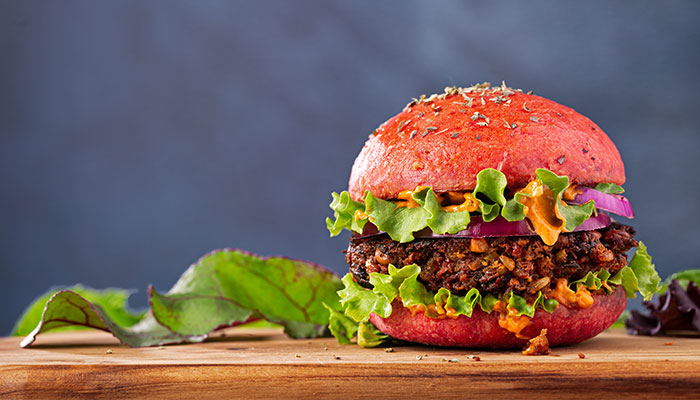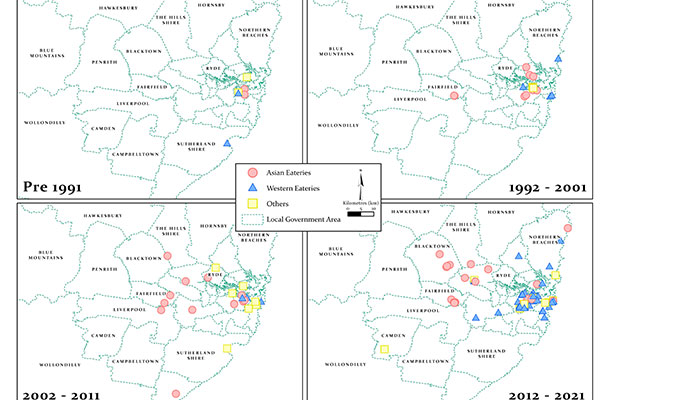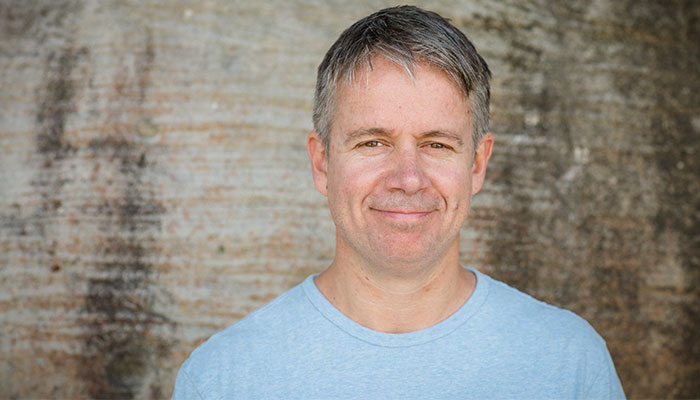Small businesses promoting vegan food are on the rise across Sydney as their owners adopt commerce as a method of changing consumer dietary preferences.

“Rather than take to the streets, they are taking to their kitchens, adopting a more visceral, quiet activism that employs food and taste to convince consumers of the benefits of plant-based food,” says Associate Professor Andrew McGregor, the lead author of a new paper published today in Social and Cultural Geography.
McGregor led a team of geographers who identified more than 140 cafes, restaurants and vegan food retailers whose owners are opposed to animal agriculture for a variety of overlapping reasons, including animal rights, environment, health and religion.
Vegans eat a plant-based diet and avoid products from animals including fish, birds and bees (for honey). Their reasons include opposition to animal exploitation, to reduce the environmental impacts of animal agriculture, to improve their health, or in accordance with spiritual beliefs and teachings.
The researchers from the Macquarie School of Social Science found from the 1990s to 2011, Asian businesses dominated vegan restaurant growth in Sydney, predominantly in the western suburbs, including Cabramatta and Fairfield. These restaurants reflected the Buddhist, Hindu, Sikh and Hare Krishna beliefs of their surrounding multicultural communities.
But McGregor says since 2012, there’s been a rapid increase in Western-style restaurants in wealthier, inner-city and eastern suburbs areas, particularly Glebe, Newtown and Bondi, catering to consumers predominantly of Anglo and European heritage.

Vegan Sydney: Once dominant in western sydney, plant-based restaurants have sprung up around the inner city and eastern suburbs areas of Sydney since 2012. Map: Associate Professor Andrew McGregor.
“Many of these restaurants focus on Western ‘comfort’ food like pizza, burgers, fish and chips and ice-cream, enticing people to try plant-based meat substitutes often for environmental or animal rights reasons,” he says. “While they’re personally vegan, many owners use the word ‘plant-based’ because it’s considered more socially acceptable.”
One vegan chef quoted in their study said that he didn’t agree with the confrontational approach that some animal rights activists take to veganism, preferring the more persuasive method of actually selling delicious food.
“So much of food is emotion and texture, and when you deliver that you kind of change people’s head space,” he said.
Motivation to create change
Sydney’s growth in vegan businesses reflects the rise in the number of people eating a plant-based diet nationally. Almost 2.5 million Australians say they eat a diet which is all, or almost all, vegetarian, according to market research company Roy Morgan. This figure is up from 1.7 million in 2012. Of these, about 500,000 people are vegan.
Rather than take to the streets, they are taking to their kitchens, adopting a quiet activism that employs food and taste to convince consumers of the benefits of plant-based food.
Woolworths research in 2021 found that 62 per cent of its customers purchased meat-free or dairy-free products at least sometimes. The behaviour of these ‘flexitarian’ shoppers led the country’s biggest supermarket chain to increase its vegan products offered on its website to more than 1800 today (from 550 in 2019). Rival supermarket Coles now has 1100 ‘Coles Own Vegan’ products and many other vegan brands on offer.
Multinational food chains such as McDonald’s, KFC and Hungry Jacks have also introduced vegan alternatives in recent years, but received criticism for cashing in on the growth in veganism without reducing their offerings of meat.
This is in contrast to the vegan small businesses mushrooming around Sydney, McGregor says, who share a conviction to disrupt eating habits rather than just profit from a consumer trend.
“They were all genuinely motivated, because most were vegan or vegetarian themselves,” McGregor says. “Many said their businesses were precarious and they’d be much better off financially if they sold meat and dairy products too. Many were taking a financial hit for not doing so. But they continued because they wanted to make a difference.”
Still, the growth in vegan small businesses is unlikely to have a significant impact on Australia’s meat and dairy industry any time soon. Australian per capita consumption of beef is one of the highest in the world at 19.2kg in 2021, while the global average is 6.4kg, according to Meat and Livestock Australia, the peak industry body.
Shared mission
On the positive side, McGregor’s team discovered that many plant-based businesses had a sense of solidarity with each other, as well as civil society organisations and vegan supporters. They took part in vegan markets together, held cooking classes, shared public relations initiatives and participated in plant-based food festivals and promotions.
As one vegan restaurant owner quoted in the study said: “It’s because of that community feel that if you’re doing something that’s plant-based, you must already be onside ethically. You’re all working towards a unique mission and making money is only one part of that.”
McGregor says that it’s important that this growing community continues to be as welcoming, diverse and inclusive as possible and embraces businesses from multicultural backgrounds so that it is not regarded as white and elitist.
Already, these Sydney plant-based businesses are contributing to changing consumption patterns, he says. “They are helping create a climate, a public consciousness that will be more receptive to policy initiatives that are aimed at growing plant-based industries and reducing reliance upon animal agriculture in the future.”

Associate Professor Andrew McGregor, pictured, is a human geographer in the Macquarie School of Social Sciences.






